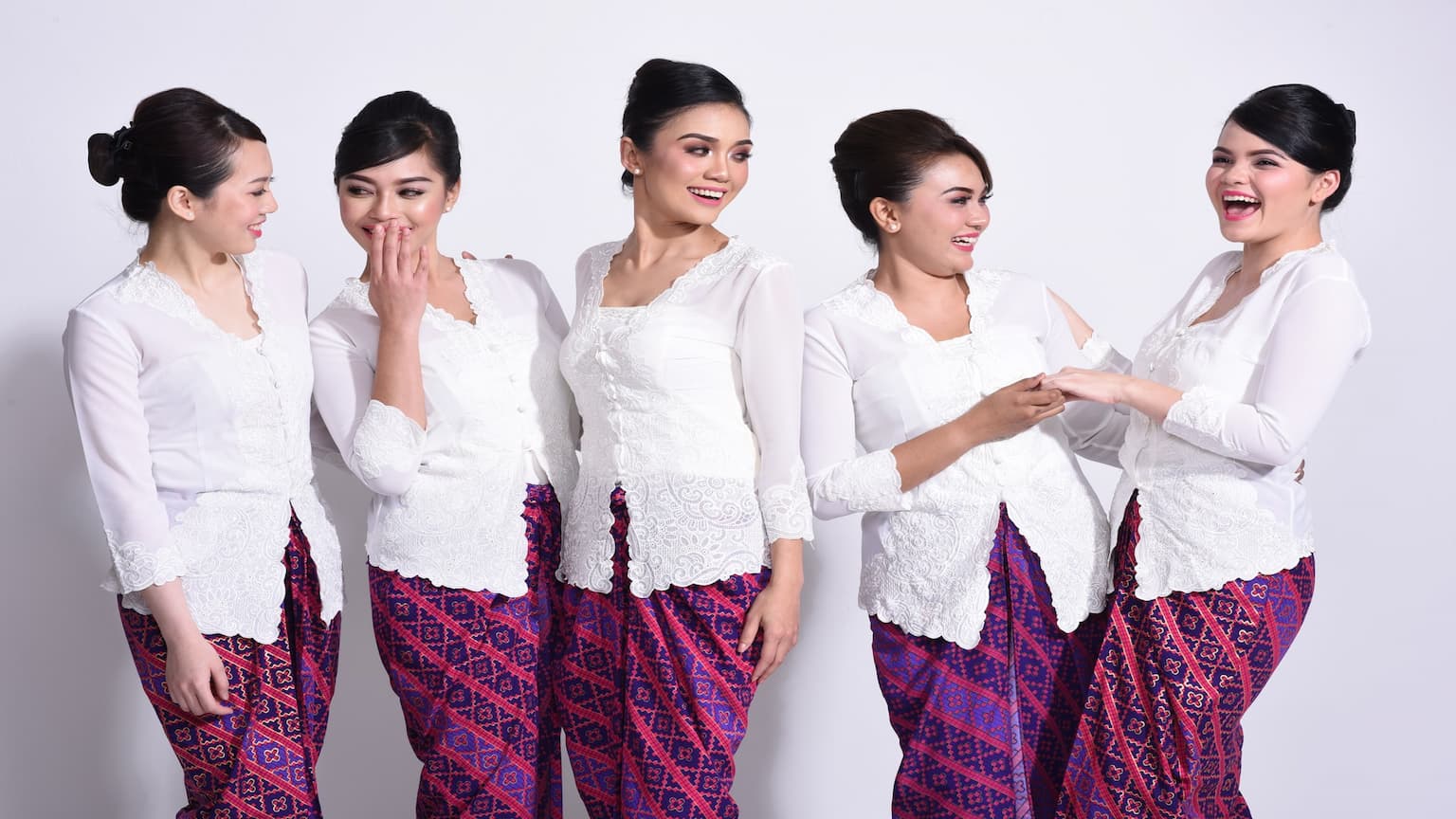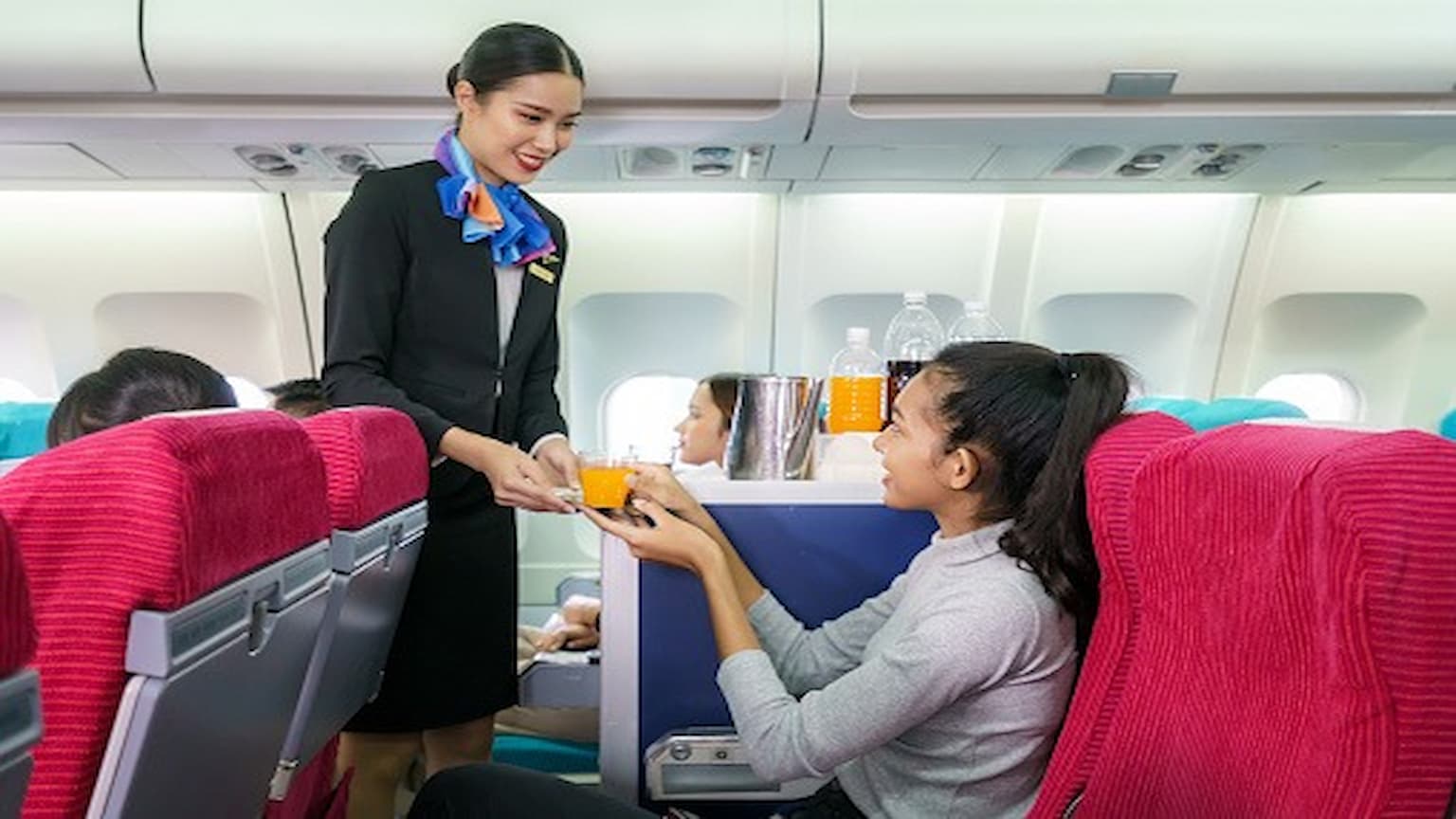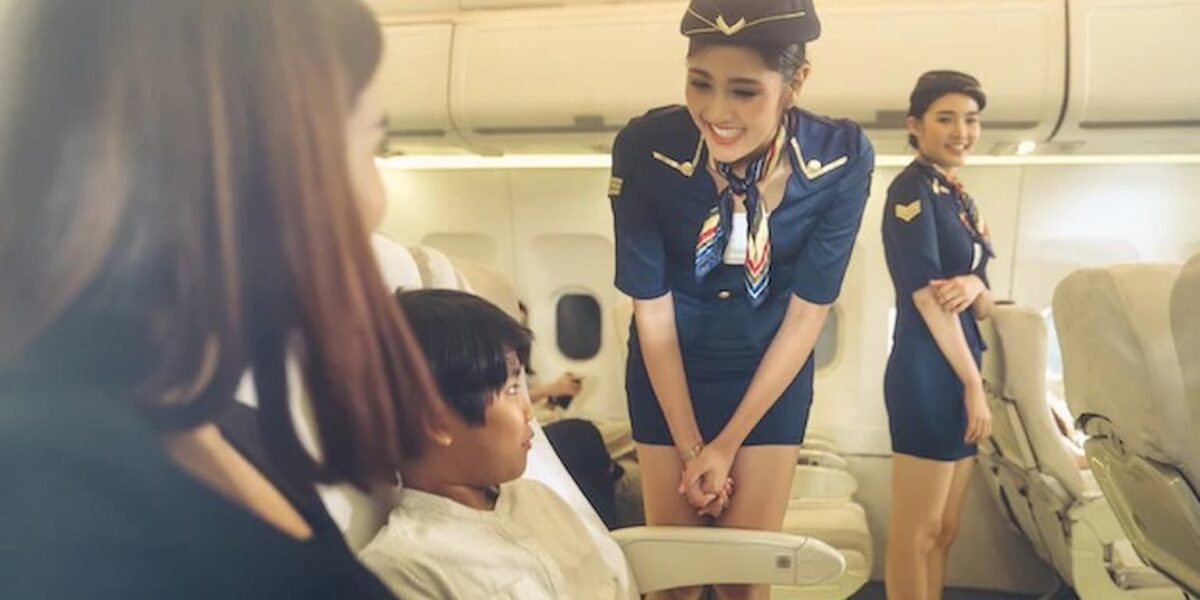A career as an Air-Hostess or Cabin Crew is the dream of many youngsters. But the job’s satisfaction depends on how many challenges they take in life. Are you the one who wants to travel for a living, then a career as a cabin crew or flight attendant is an ideal option, as it offers an excellent opportunity to explore new destinations.
Suppose you’re interested in becoming Air-Hostess, or Cabin Crew. In that case, our Cabin Crew career training courses will provide you with the confidence, skills, and inside knowledge to showcase your potential to Cabin Crew recruiters.
Cabin Crew’s Key role and responsibilities
If you’re thinking about joining the cabin crew, it’s also crucial that you learn everything there is to know about the job. Cabin crew employees are responsible for ensuring that airline customers have a safe, comfortable, and enjoyable journey. The following are the responsibilities:
- Attending a pre-flight briefing about the aircraft and its itinerary (you’ll also be warned about passengers with specific needs, such as diabetic travelers).
- Pre-flight chores include checking that the plane has enough supplies and that the emergency equipment is operational.
- Greeting and directing guests to their seats after they have boarded.
- Demonstrating safety procedures
- Assuring that all hand luggage is safely kept
- Before taking off, double-check that all seat belts and galleys are in place to ensure the comfort of passengers during the voyage
- Serving food and beverages
- Passengers are sold duty-free goods and are informed about any allowance limits.
- Making public announcements about the pilot.
- Answering questions from travelers.
- In the event of an emergency, reassuring passengers and ensuring that they follow safety measures appropriately
- If necessary, administer the first aid ensuring that passengers safely exit from the plane.
- Make sure to check there is no luggage, stowaways, or suspicious items left on board.
- Writing a flight report for noting any unusual incidents.
Career as a Cabin Crew
Cabin staff employees assist passengers with everything from making sure they are comfortable in their seats to announcing and displaying safety protocols. Passengers will be served food and refreshments, and pillows and blankets will be distributed as needed. If a passenger becomes ill, you will assist him or her. When the plane arrives at its destination, you’ll assist passengers in disembarking. In the event of an emergency, you will assist passengers in exiting the plane.

Cabin Crew Course Eligibility
- You must be at least 18 years old (21 for some airlines)
- Passed 10+2 with English as a subject in any stream.
- Possess a healthy level of physical fitness
- Have a color vision that is normal.
- Have a valid passport with no restrictions for the airline’s destinations.
- Have exceptional communication abilities.
- Have outstanding customer service abilities.
- Have the ability to work in a group
- Have a good understanding of numbers (for handling cash, including foreign currency)
- Work unsociable and irregular hours with flexibility.
- Be self-assured when dealing with a diverse group of people.
- When necessary, be courteous, diplomatic, and assertive.
- Working in a restricted environment is a must.
- Be able to calmly and rapidly diffuse problems
- Females must be 155 cm or taller, and males must be 170 cm or taller in proportion to their weight.
- To receive a full scholarship and acceptance into one of India’s top cabin crew schools. Students can register for the AME CET national entrance exam.
Cabin Crew Course Duration
Cabin Crew training has a wide range of applications in aviation, with numerous job prospects with major airlines. The training will last around 11 months in India, during which time students will improve their personality and communication skills. During their studies, students will learn about aircraft, emergency situations, passenger psychology, technical training, and other topics. The student will receive a certificate in cabin crew after completing the course.
Cabin Crew Career Opportunities
Passengers expect a friendly and helpful cabin crew whenever they travel by airplane. The cabin Crew is also known as Air hostesses/Flight attendants/stewards. Their job in the airlines is to assure passenger comfort and safety on both domestic and international flights. Cabin crew members can work on international, domestic, commercial, chartered, and military aircraft.
Cabin Crew Employment Course
This flight attendant training course teaches you about the aviation industry and the flight attendant hiring procedure. The course covers resume writing, cover letters, individual, group, and video interviewing abilities over the course of two weeks full-time or six weeks part-time.
It includes credentials in First Aid and Responsible Service of Alcohol, which are necessary for all Australian cabin crew positions. This course provides you a leg up on the competition when it comes to landing a job with your preferred airline.
Course Modules;
- Introduction to Aviation.
- Recruitment Process.
- Personal & Professional Presentation.
- A Day in the Life of Cabin Crew.
- Provide First Aid.
- Provide Responsible Service of Alcohol.
Cabin Crew Preparation Course

This flight attendant training is for you if you want a more hands-on experience with a lot of practical exercises. You’ll obtain knowledge and abilities that will help you stand out during the recruitment process and at an airline ground school.
This course contains 60 hours of online instruction and runs for 4 weeks full-time or 12 weeks part-time. This includes the whole Cabin Crew Employment course, as well as considerable hands-on experience. Learn how to use emergency equipment, conduct a slide descent and pool exercise, and brush up on your knowledge of human factors in aviation.
Course Modules;
- Introduction to Aviation.
- Recruitment Process.
- Personal & Professional Presentation.
- Provide First Aid.
- Provide Responsible Service of Alcohol.
- Inflight Services.
- Emergency Equipment.
- Non-Normal Situations (Fire/decompressions).
- Emergency Procedures.
- Human Factors & Fatigue.
- Aircraft Familiarisation.
- Standard Operating Procedures.
Inside the airplane, the cabin crew is the first line of defense, as their work assures the safety of all passengers.
When it comes to security, flight attendants or cabin crew must take every precaution because they are accountable for the passengers’ and crew members’ safety. Despite the fact that training varies by airline, flight attendants are often well-versed in safety and security procedures to ensure the best possible reaction in the event of an emergency.


